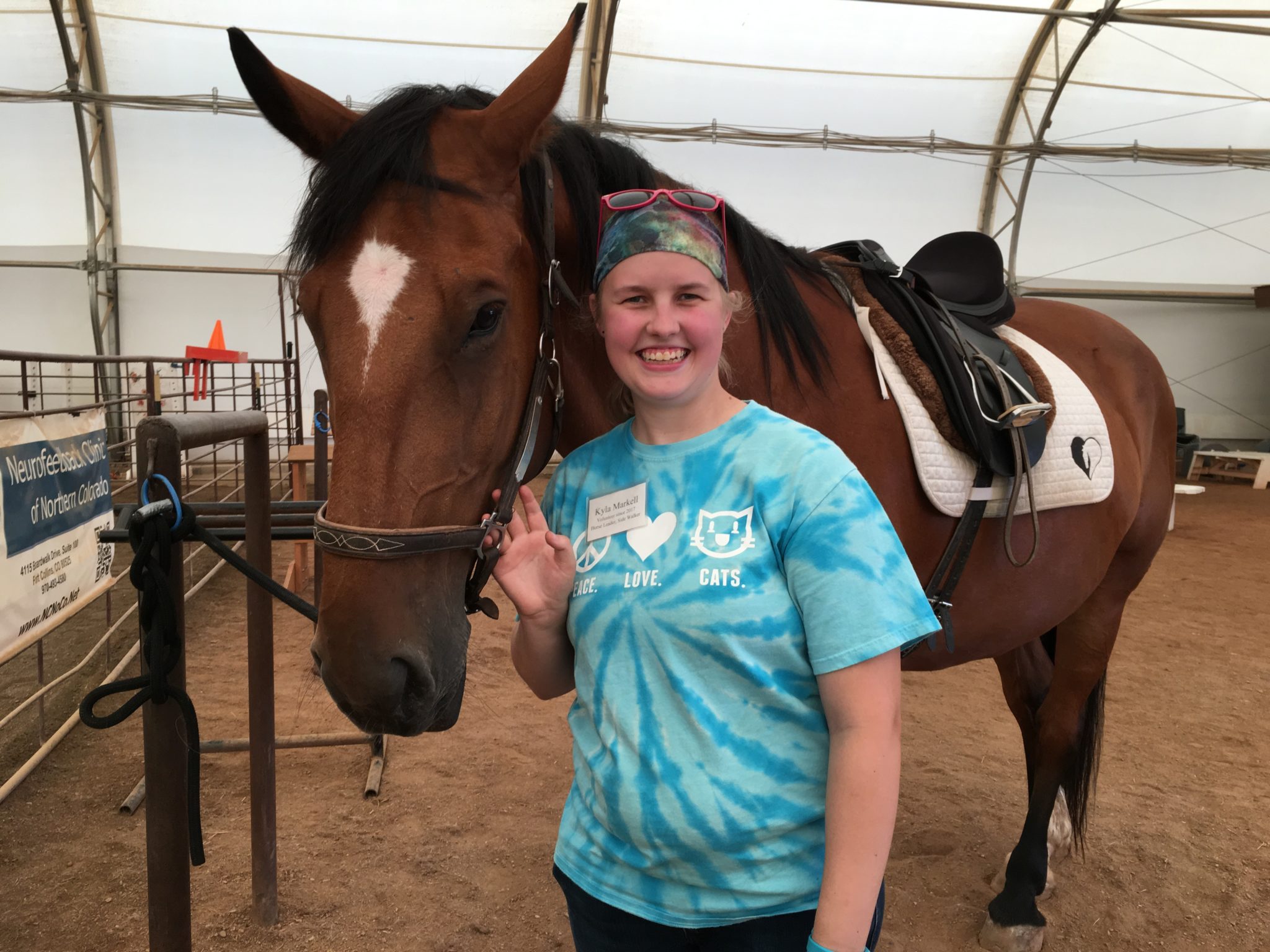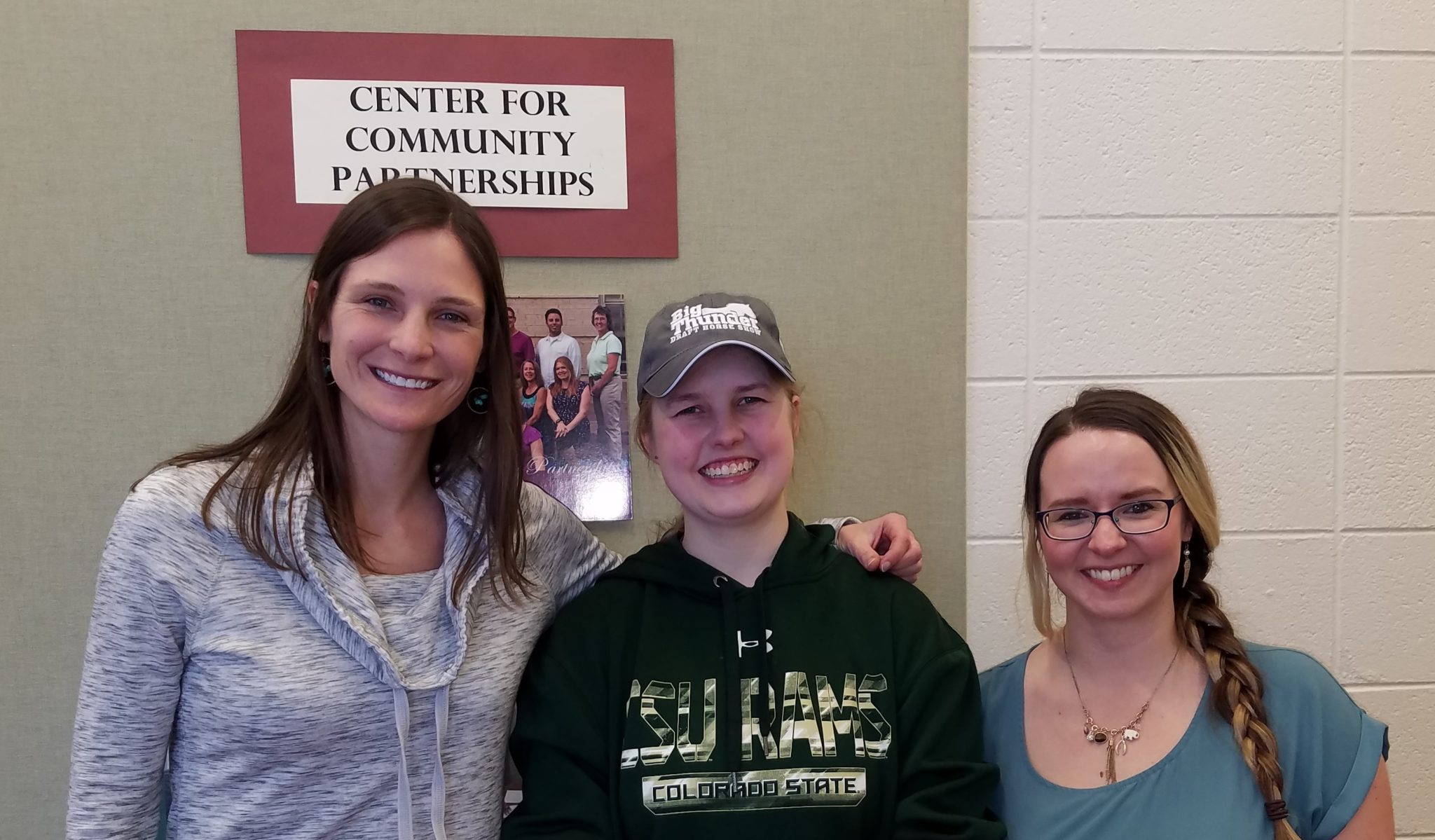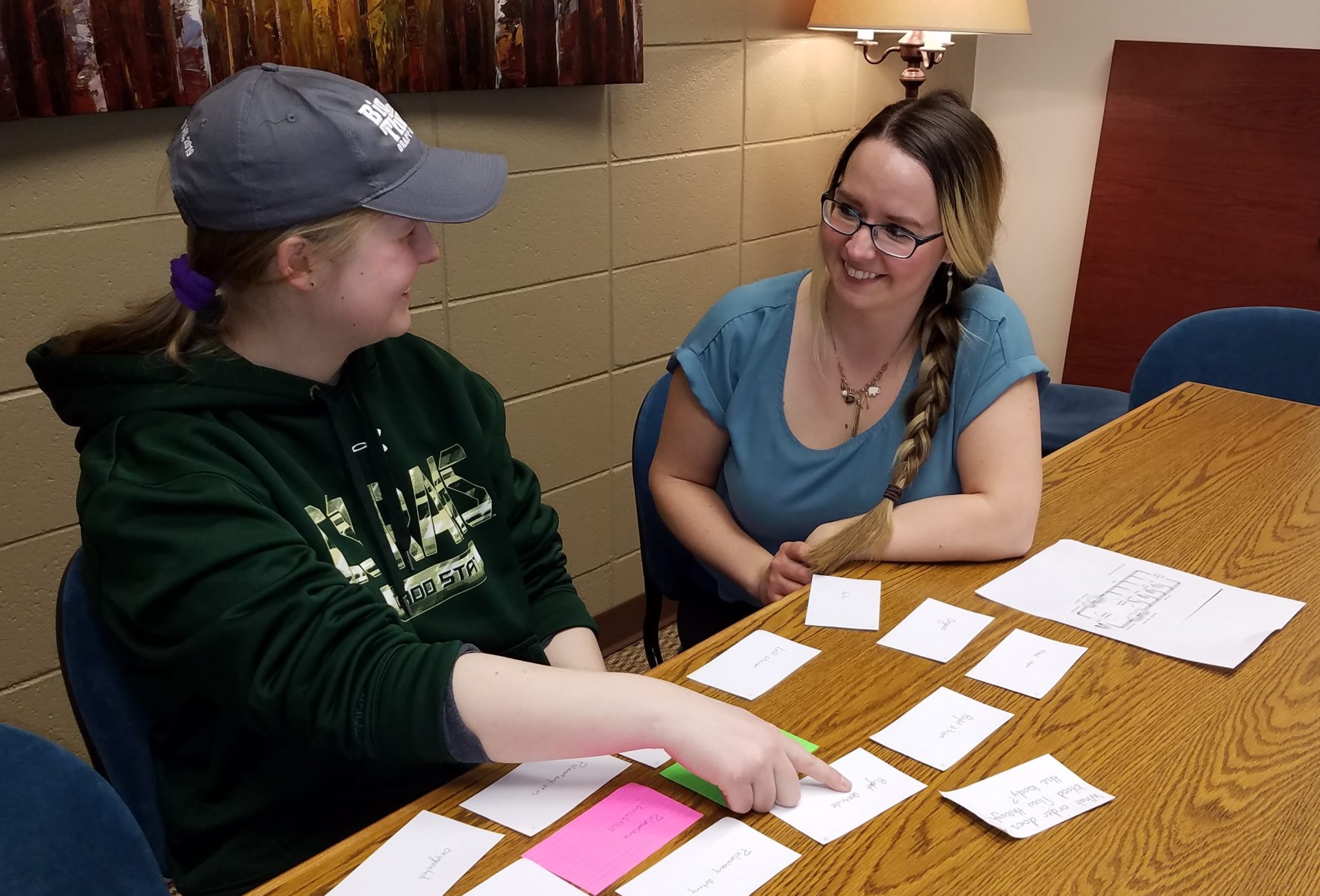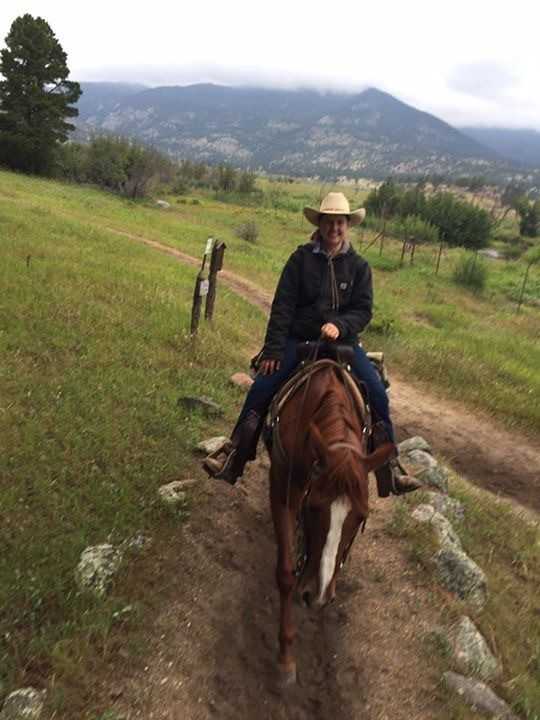
Story by Annie Peyton
Growing up, Kyla Markell always knew she wanted to work with horses. “You know those little girls who are obsessed with horses? That was me, but I just never grew out of it,” she says with a smile. It’s no surprise that now, as a senior at Colorado State University, Markell majors in equine science so that she can turn her passion into a career.
Despite Markell’s obvious motivation to succeed academically, college coursework hasn’t always been easy for her. In 2015, just before she entered college, Markell underwent surgery to remove a tumor from the part of her brain responsible for short-term memory. The surgery was a success, but her short-term memory was affected. “I’m working on making new connections in my brain,” explains Markell, “but it has put me back in my studies because I have trouble remembering the little things.”
Despite her best efforts, Markell found herself struggling to pass some of her tougher classes. Large animal physiology proved to be the most difficult. “It involves a lot of technical information,” explains Markell, “like the different types of cells, how the blood flows, that kind of thing.”
On her first attempt, Markell failed the course. Knowing that a passing grade was required to continue with her degree plan, she took it again a second and third time only to fail both attempts. Not one to give up, Markell enrolled in the class a fourth time last fall, only to fail the first exam. “After that first test, I thought, ‘I’m going to fail again. What if I’m not able to do this?’ ”
Finding support in CSU’s Opportunities for Postsecondary Success program
Unwilling to give up on her dreams, Markell took a chance when she heard about Opportunities for Postsecondary Success, a service and outreach program based out of CSU’s Department of Occupational Therapy. The purpose of OPS, a program of the Center for Community Partnerships which works closely with the Student Disability Center, is to provide individualized support services and resources to CSU students with disabilities so that they can be successful.
OPS also works with the Assistive Technology Resource Center which helps match students with apps and assistive devices. It was here that Markell was introduced to Sonocent Audio Notetaker which, among other features, allows students to record class lectures. “It was very helpful,” Markell describes, “because I could go back and listen to a lecture and figure out where I needed to spend more time studying.”
Working towards success through mentoring program

Another service that OPS provides is pairing struggling students with mentors. Markell was paired with Cassandra Stevenson, an occupational therapy master’s student. “We looked at how we could make Kyla successful and satisfied with her role as a student here at CSU,” Stevenson says. “We determined that her goal was to pass her class, and then we talked about test-taking and study skills as our main components of reaching that goal. We started going through the trial and error process of figuring out what worked for Kyla and what didn’t work.”
“What didn’t work was taking the test in the typical classroom setting,” adds Markell, who explains that the many steps involved in taking a typical written exam were acting as a barrier to her. Markell kept trying new strategies. She started attending group study sessions but notes, “Those sessions weren’t what I was looking for, because I knew the material. My brain just wouldn’t give me the information.”
The “aha moment”
 A turning point happened when Markell and Stevenson were brainstorming study habits with the OPS team during a routine meeting. “We suggested that Kyla try using flashcards because flashcards provide a cue to trigger information recall,” Stevenson explains. “So Kyla made flashcards on blood circulation and we started asking questions. Kyla was able to answer the questions and teach us the material with just the flashcards. We just looked at her and said, ‘You know this material. Can you do an oral test with your teacher?’ ”
A turning point happened when Markell and Stevenson were brainstorming study habits with the OPS team during a routine meeting. “We suggested that Kyla try using flashcards because flashcards provide a cue to trigger information recall,” Stevenson explains. “So Kyla made flashcards on blood circulation and we started asking questions. Kyla was able to answer the questions and teach us the material with just the flashcards. We just looked at her and said, ‘You know this material. Can you do an oral test with your teacher?’ ”
From there it was just a matter of getting approval from Markell’s professor, who agreed to administer an oral version of the exam. Markell emphasizes how essential her teacher’s flexibility was to her success. “He really helped me overcome this class,” she recalls warmly. “He was so willing to work with me.”
Fortunately for Markell this alternative test-taking strategy was a huge success. Markell shares, “Before the oral tests I had been getting test scores of Ds and Fs. Then I started doing the oral tests and I got Bs. I was passing! All the other times I had failed this class. All I needed was a C so I was thrilled that I was getting a B. It was a really tough class and I passed it with flying colors.”
On witnessing Markell’s success in not only meeting but surpassing her goal, Stevenson shares, “We were just really happy because we were able to see her progress throughout the semester from when she first came in and see her satisfaction and self-esteem just grow in leaps and bounds. I’m so happy for her and impressed by her progress.”
Spreading hope to other students in need
As she navigates the tail end of her college career, Markell says she will continue to work with OPS for support. “I just wish I had known about OPS sooner,” she reflects. “At one point I felt so alone. Even my family couldn’t help me because they had never experienced what I was experiencing. OPS helped me so much with my confidence and getting me to the point where I believed that I could do this.”
To other students who might be struggling, Markell emphasizes the importance of getting in touch with the right resources. Erica Billingsley, a transition coordinator with OPS and a member of Markell’s team, seconds this advice. “It can feel like there aren’t other people who are struggling,” she acknowledges. “But you’re not alone. Struggle is a normal part of life and that’s why there are resources available for you.”
And the resources are plentiful. Through OPS, Markell discovered the Division of Vocational Rehabilitation, a state agency that helps match people with disabilities to employment opportunities. DVR is working to place Markell in a horse-related summer job. Billingsley adds, “Once she graduates, they will stick with her and help her find employment. DVR is an awesome agency.”
 “It’s like a chain reaction. Once you open up that first door you just keep finding more and more resources,” Stevenson says. “To other students out there, just keep trying. There’s a solution no matter what, and you just have to find that little puzzle piece that will make everything fit together.”
“It’s like a chain reaction. Once you open up that first door you just keep finding more and more resources,” Stevenson says. “To other students out there, just keep trying. There’s a solution no matter what, and you just have to find that little puzzle piece that will make everything fit together.”
Looking ahead to a bright future
With the help of OPS and DVR, Markell’s future is bright. “I’m exploring what I want to do with my horse career,” she notes. “There are a lot of tracks that I’m looking into and, yeah, I have some short-term memory issues, but that’s not changing who I am.”
The Department of Occupational Therapy is part of CSU’s College of Health and Human Sciences.